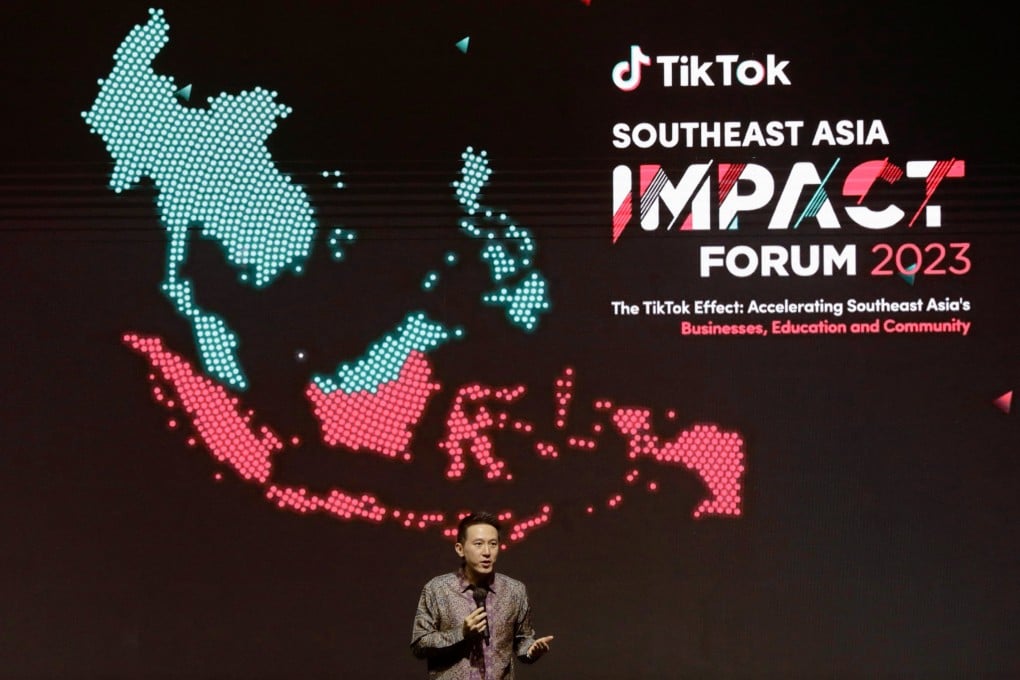TikTok to spend billions in Southeast Asia as e-commerce move pays off
- ‘From a humble team of about 100 people, we now have nearly 8,000 employees in Southeast Asia [and] we’re going to invest billions of dollars,’ CEO says
- 125 million Indonesians comprise the app’s 325 million Southeast Asian users every month and about 2 million sell their wares on TikTok Shop in Indonesia

TikTok’s chief executive said on Thursday that the company would pour billions of dollars into Southeast Asia in the coming years, as a report showed its nascent venture into online shopping is paying off.
The popular video-sharing app’s e-commerce affiliate has gained a substantial market share in the region just a year after its launch.
“We’re going to invest billions of dollars in Indonesia and Southeast Asia over the next few years,” Shou Zi Chew told a forum in Indonesian capital Jakarta.
“From a humble team of about 100 people, we now have nearly 8,000 employees in Southeast Asia.”
Chew said 125 million Indonesians comprised most the app’s 325 million Southeast Asian users every month and more than two million sell their wares on TikTok Shop in Indonesia, the region’s biggest economy and most populous nation.
Users sell a range of tech, fashion, home-made products and other goods on the platform.